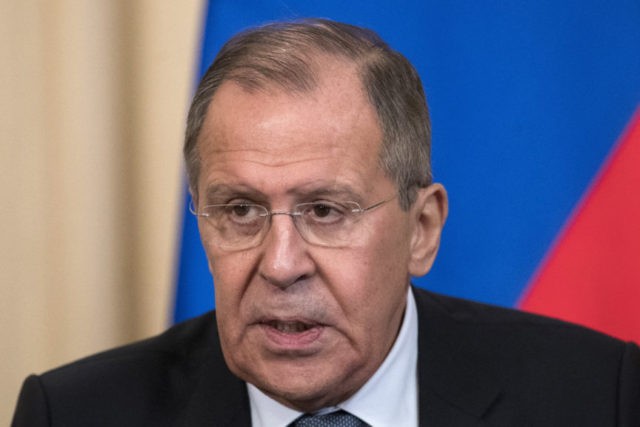MOSCOW (AP) — Russia’s foreign minister said Friday that a new report on the poisoning of a former spy does nothing to support Britain’s contention that Russia was behind the attack.
Investigators at the Organization for the Prohibition of Chemical Weapons confirmed British findings that double agent Sergei Skripal and his daughter, Yulia, were poisoned with a military-grade nerve agent in Britain on March 4. But it didn’t say who was responsible for the poisoning.
Foreign Minister Sergey Lavrov said the report does nothing to back the British allegations that Moscow was behind the attack, which Moscow denies.
“I want to underline: the OPCW only has confirmed the composition of the chemical agent,” Lavrov said at a news conference.
Britain says scientific analysis of the poison is only one of the factors that has led it to blame Russia.
Russia has accused Britain of waging a defamation campaign, manipulating public opinion and hiding facts. Russian officials also have argued that Moscow had no motive to attack Skripal, who was convicted in 2006 of spying for Britain but released in a 2010 spy swap.
British National Security Adviser Mark Sedwill, meanwhile, said in a letter to NATO Secretary General Jens Stoltenberg that Russian intelligence agencies have been spying on Skripal and his daughter for at least five years.
Yulia Skripal, 33, has been released from the hospital. Her father remains in the hospital but British health officials say he is improving.
Russia has charged that British officials were keeping Skripal’s daughter in isolation. It demanded access to her and prodded Britain to share evidence in the case.
Britain said the Skripals were poisoned with the Novichok class of nerve agents that was developed in the Soviet Union toward the end of the Cold War, and claimed that it has evidence Russia has continued to manufacture Novichok agents in the last decade.
Russia strongly denied the claim, saying that it completed the destruction of all its Soviet-era chemical weapons arsenals last year under international oversight. It insisted that the nerve agent used on the Skripals could easily have been manufactured in any of the other countries that have advanced chemical research programs.
___
Gregory Katz in London contributed to this report.

COMMENTS
Please let us know if you're having issues with commenting.